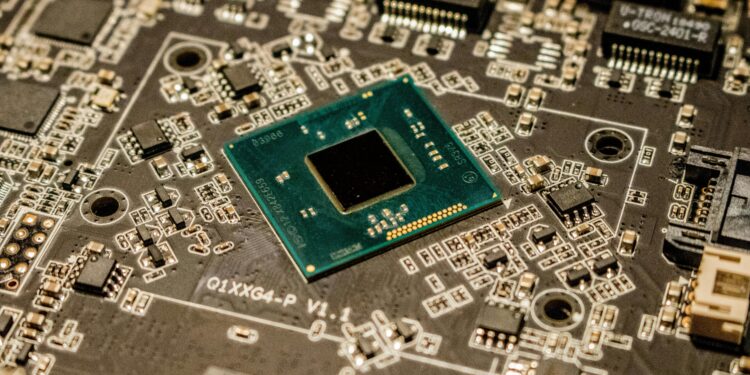Intel’s Latest Offering Aims to Disrupt Nvidia’s Dominance in the AI Chip Market
Intel (INTC) made a significant move in the semiconductor industry by unveiling its latest artificial intelligence chip, the Gaudi 3. This launch signals Intel’s ambitious bid to capture a larger share of the AI chip market, currently dominated by Nvidia, which commands an estimated 80% market share.
The Gaudi 3 chip boasts impressive performance metrics, with Intel claiming it to be over twice as power-efficient and capable of running AI models 1.5 times faster than Nvidia’s H100 GPU. This enhanced efficiency could potentially make Gaudi 3 an attractive choice for companies seeking high-performance AI solutions.
Intel’s strategic approach with Gaudi 3 involves offering various configurations, including a bundle of eight chips on a single motherboard or a card compatible with existing systems. This flexibility aims to cater to diverse customer needs across different industries.
The chip has undergone rigorous testing on prominent AI models, including Meta’s Llama and Falcon, showcasing its versatility in training and deploying complex AI algorithms. Moreover, Intel emphasizes the energy efficiency of its chips, a crucial factor in the sustainable development of AI infrastructure.
While Nvidia’s dominance in the AI chip market is formidable, Intel’s entry with Gaudi 3 signifies a notable challenge. With major technology players like Dell, HP, and Supermicro set to integrate Gaudi 3 into their systems, Intel anticipates strong competition against Nvidia’s latest offerings.
As the demand for AI accelerates across various sectors, Intel’s move to introduce Gaudi 3 underscores its commitment to innovation and competition in the semiconductor landscape. The success of Gaudi 3 could pave the way for a more balanced market, offering customers increased choice and driving further advancements in AI technology.
You might like this article:Boeing Faces Delivery Dip Amidst Increased Scrutiny











